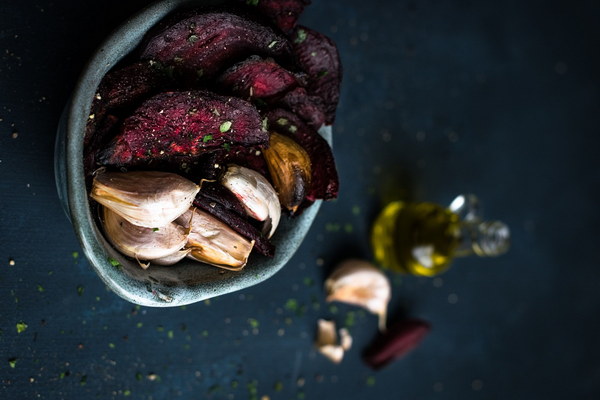How to Nurture Your Body During Stomach Pain A Comprehensive Guide
Gastrointestinal discomfort or stomach pain can be a real nuisance, disrupting your daily routine and causing significant discomfort. Whether it's due to indigestion, ulcers, or other underlying conditions, it's essential to take proper care of your body when experiencing stomach pain. This article will provide a comprehensive guide on how to nurture your body during such times, offering practical advice and tips to help alleviate symptoms and prevent future occurrences.

1. Diet and Nutrition
A balanced diet is crucial when dealing with stomach pain. Here are some dietary recommendations:
a. Eat smaller, more frequent meals: This helps prevent overeating and reduces the workload on your digestive system.
b. Avoid trigger foods: Common culprits include spicy foods, caffeine, alcohol, and fatty foods. Keep a food diary to identify your triggers and eliminate them from your diet.
c. Consume fiber-rich foods: Foods like apples, pears, carrots, and whole grains can help regulate digestion and reduce stomach pain.
d. Stay hydrated: Drinking plenty of water can aid digestion and prevent constipation or diarrhea.
e. Include probiotics: Foods like yogurt, kefir, and sauerkraut can help maintain a healthy gut flora, reducing stomach pain and promoting overall digestive health.
2. Lifestyle Changes
Adopting certain lifestyle changes can significantly impact your stomach pain:
a. Reduce stress: Stress can exacerbate stomach pain. Practice relaxation techniques such as deep breathing, meditation, or yoga to manage stress levels.
b. Get regular exercise: Regular physical activity can improve digestion and reduce stomach pain. However, avoid intense exercise if you're experiencing severe pain.
c. Maintain a healthy weight: Being overweight or obese can put additional pressure on your digestive system, leading to stomach pain. Consult with a healthcare professional to develop a weight loss plan if necessary.
3. Medications and Supplements
Over-the-counter medications can help alleviate stomach pain symptoms. Here are some options:
a. Antacids: These help neutralize stomach acid and provide quick relief from heartburn and indigestion.
b. Proton pump inhibitors (PPIs): PPIs reduce the production of stomach acid, which can help manage chronic conditions like gastroesophageal reflux disease (GERD).
c. Peppermint oil or ginger: These natural remedies can help relax the muscles in your digestive tract and reduce pain.
d. Probiotics: As mentioned earlier, probiotics can promote a healthy gut flora and alleviate stomach pain.
4. Seek Professional Help
If your stomach pain persists or worsens, it's crucial to seek professional help. A healthcare professional can diagnose the underlying cause of your pain and recommend appropriate treatment options.
In conclusion, nurturing your body during stomach pain involves a combination of dietary changes, lifestyle adjustments, and potentially medication. By following these recommendations, you can alleviate symptoms and prevent future occurrences. Remember to consult with a healthcare professional if you're unsure about the best course of action for your specific situation. With proper care and attention, you can effectively manage stomach pain and maintain your overall well-being.









